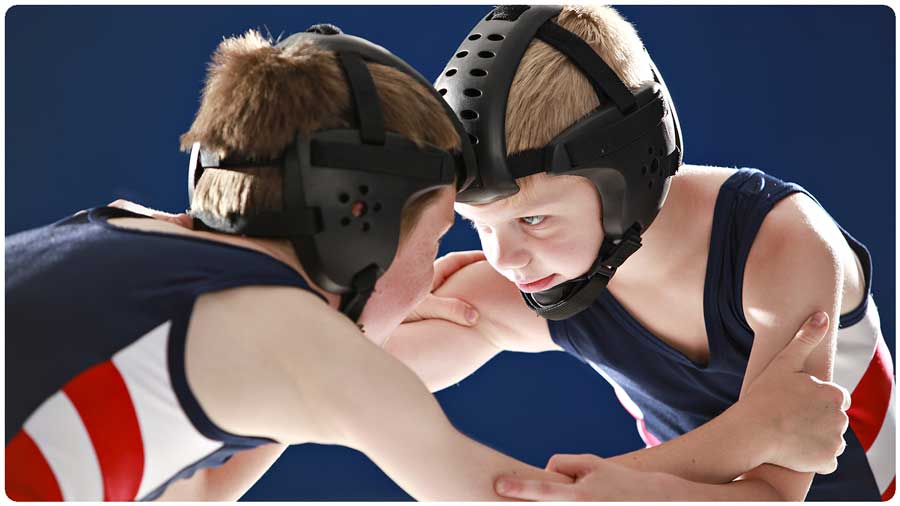When most people think of wrestling, they think of the theatrical antics of TV's professional wrestlers. But that's not real wrestling. Real wrestling is about discipline, sportsmanship, physical development, and strategy. That's why families across the country sign their children up as soon as they meet the minimum age requirement, which is often as young as 4 or 5.
Wrestling Instills Discipline
Wrestling is not a free-for-all. Just as there are specific ballet steps, there are specific wrestling moves. There's also a very structured scoring system. A wrestler who takes his opponent down to the mat gets two points; a wrestler who is on the mat but escapes earns one point. The match doesn't drag on until someone is pinned; there are time limits, and if no one is pinned when the time runs out, the wrestler with the higher score wins.
There are also a number of moves that are not allowed in youth wrestling, with penalties ranging from giving your opponent points to getting disqualified from the match. And, while there may be many matches taking place at any given time, each pair of wrestlers has its own ref, who is responsible for making sure they follow the rules and adhere to safety precautions. It's not at all unusual for a ref to lie down on his stomach so he'll be at eye-level with wrestlers grappling on the mat. Each wrestler usually has a coach there, too, ready to offer guidance and encouragement.
 Wrestling Teaches Sportsmanship
Wrestling Teaches Sportsmanship
Every match starts with a handshake. After the match, the wrestlers shake hands again; then they shake hands with the opposing coach. This custom teaches wrestlers to be sportsmanlike and gracious whether they win or lose. Unsportsmanlike conduct will get a wrestler thrown out of the match.
Wrestling Aids Physical Development
Because wrestling is an individual rather than a team sport, each athlete is coached to maximize his or her own overall fitness rather than honing a specific skill set to meet a team's needs. Rather than practicing the perfect fast pitch over and over, for example, a wrestler's training includes running, push-ups, sit-ups, stretching, weight lifting, etc.
Wrestlers Compete on a Level Playing Field
One great thing about wrestling is that wrestlers are matched up by both age and weight, so it's one of the few sports where smaller kids can be just as successful as their bigger peers. Size matters far less than technique and endurance.
Wrestling is a great sport for any young athlete, especially those who haven’t found success in other sports. Wrestling is also one of the few sports where anyone who's willing to work hard enough can excel. If you're interested in finding wrestling opportunities for your child, start with the local high schools. Many also run youth programs, ensuring themselves a steady stream of seasoned wrestlers.


